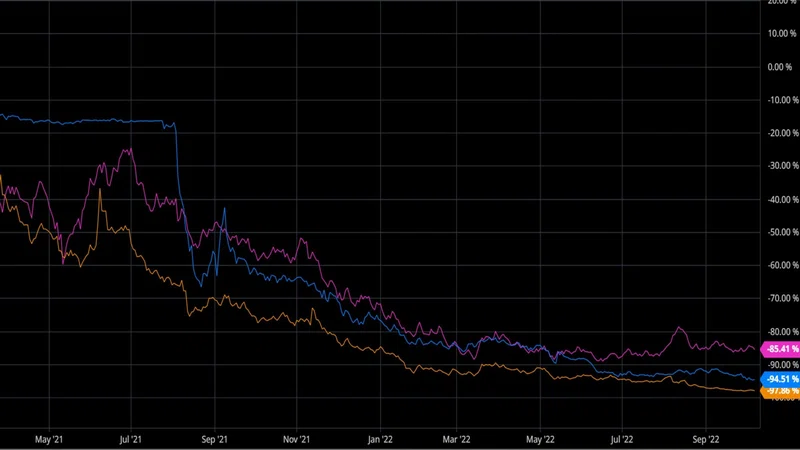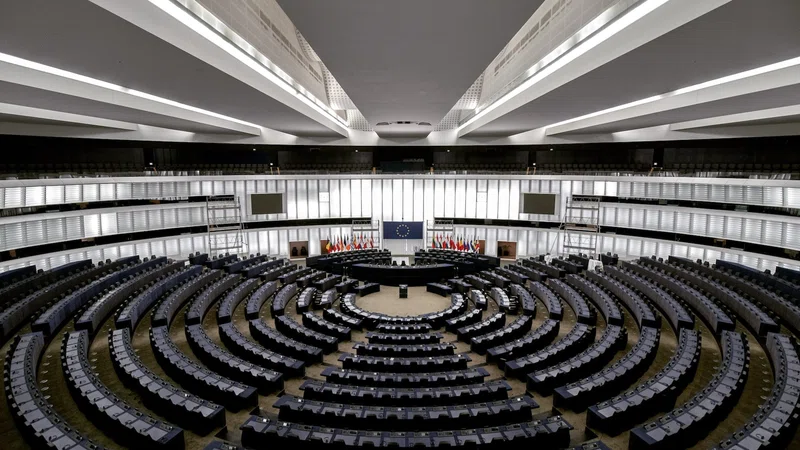There’s a famous saying in business that culture eats strategy for breakfast. Organizations are made up of people, and the organization’s culture dictates how they behave. The best strategy in the world can’t overcome behavior that is at odds with the organization’s mission and values. At least not for very long.
Now, culture can a nebulous thing. You know what it is intuitively, but it is hard to define.
I’ll admit I didn’t fully understand what culture was until I read Ben Horowitz’ book What You Do is Who You Are. A great read for anyone wanting a better understanding of the hows and whys of culture.
Your organization’s culture is how it makes the small, minute by minute decisions day in and day out. How long does it take to respond to a client email? How do you welcome a new employee to the team? Who speaks during meetings?
It’s also something fluid, compounding in different directions all the time. This is why great cultures are so powerful, and why toxic cultures are so destructive.
Culture is clearly a critical part of any company. But what about decentralized projects…is culture a thing? Does it matter? Now that I’m working in DeFi, I’ve started thinking a lot about these questions.
My conclusion is culture is actually more important for decentralized projects than it is for traditional organizations.
Let’s zoom in…
Why Culture Matters in a Decentralized Organization?
Reason #1 - culture is important to DAOs for the same reason culture is important to a traditional organization. They involve people.
There’s a misconception that DAOs in particular don’t need people because smart contracts manage everything. This is patently false.
The best comparison I could come up with is that smart contracts are to DAOs what bylaws are to traditional organizations. Bylaws describe the operational mechanics of the organization. What they don’t do is run the business. You can have an immaculate set of bylaws and a failing business. Similarly, smart contracts describe and execute the operational mechanics of the DAO. What they don’t do is make business decisions.
How should the network evolve? Should fees be increased or decreased? What assets should be supported? Who should we hire?
People make these decisions. Smart contracts execute and enforce the decisions that are made.
This was a long introduction to the first answer to the question…that culture matters because people are involved.
When you have a group of people working together to accomplish something, culture dictates how those people work. And it’s the how that makes the difference between success and failure as an organization, centralized or decentralized.
Reason #2: Culture is important for DAOs because in the absence of traditional leadership structures, culture is the most constant and pervasive force.
In traditional organizations, culture starts at the top. The founders or executives set the culture tone and lead by example. Whatever culture they create by their actions is gradually adopted by the rest of the organization, good or bad.
A culture that reinforces the mission and values needed for the group to succeed is likely a good culture. A culture that reinforces behavior counter to the mission and values of the group is likely a bad culture.
If down the road the company finds that its culture has gone off course, there is a leader, or leadership team, that can right the ship. We watched Uber navigate this very publicly in 2017. Being able to quickly make changes is one of the major benefits to a centralized governance structure.
Truly decentralized organizations are generally more flat. They lack the hierarchy and leadership structure we see at traditional organizations. In these situations, the role of culture and values is elevated. In the absence of a CEO and management teams, DAO contributors take their cue from the mission, values and culture that were established early on. People will come and go, but the culture of the community remains.
How cultures form in decentralized organizations?
Spoiler…any decentralized project, whether it’s a public blockchain, a DeFi protocol, or a services DAO, didn’t start out decentralized. Everything has a creator. That means for some period of time, the project was managed by a single person or small group of people.
Bitcoin, Ethereum, MakerDAO, Yearn. They all started this way.
Another spoiler…even after many projects “decentralize”, most are still controlled by the same insiders that were there at the beginning (by virtue of them holding a large percentage of the token supply).
This isn’t a bad thing. It’s actually the best approach to bootstrapping and scaling something new in my opinion.
Because decentralized projects typically start the same way traditional companies start, cultures form the same way too.
Culture starts with the founders. How they act on a daily basis establishes a baseline for others. As the organization grows, it’s harder to lead by example because founders don’t interact with everyone on a daily basis. To encourage certain behaviors, leadership adopts a set of values and institutionalizes them. They write them down, communicate them, and hopefully, reinforce them.
The same thing happens in decentralized organizations.
The people that start the decentralized network or the DAO behave a certain way. As the network or DAO grows, newcomers take their cue from the early contributors.
Now this model is frustrated by a truly decentralized organizations, because founders eventually take a step back from the control they exercised early on. So what happens to the culture?
Ethereum is a great example. Vitalik Buterin, one of the founders of Ethereum (but very much the leader of the project), gradually stepped back from his role as founder because he knew it was in the long term interest of the network. Fortunately, the mission and culture Vitalik and the team created early on was so strong that it not only survived the decentralization process, but it has become the most valuable asset the Ethereum ecosystem has.
With intention, culture can be reinforced, and perpetuate as the number of contributors grows.
Sometimes it goes the other way. Without intention, culture can fragment. Contributors to the decentralized organization revert back to their default way of operating. Everyone is autonomous, and it’s easy to lose the collective purpose and values that attracted people to the project in the first place.
What makes good DAO culture?
The ingredients for good DAO culture are the same ingredients for good company culture, believe it or not.
- Clear Mission. People need to know why they are contributing. Having a clear mission gives everyone purpose, and having purpose is a fundamental need all human beings have. This should also help with contributor retention. As long as you are making progress towards your mission, the most committed and passionate contributors will continue to support it. Without this, people tend to jump at the first sign of trouble, or when something new comes along.
- Strong Values. What behaviors do you want to define your community? Establishing a set of core values that will serve as a standard for future behavior is important not only for your existing DAO contributors, but new contributors as well.
- Be Early. Timing is important. Establishing a clear mission and a strong set of values early in a DAOs lifespan will give you a cultural foundation that won’t buckle when headcount grows. If you aren’t intentional about these components early on, you will end up with the mission and values of the loudest voices in the room (rule of thumb, these are usually not the values you want).
- Reinforced by Leaders. Establishing a mission and values is only half the battle. Values need to be reinforced all the time in the actions and decisions of the leaders of your community. Sometimes this is the founders. Other times it’s working group or committee members, or a contributor with a big social media following.
- Ownership. Every DAO contributor should feel like an owner, accountable for both the success of the project and the culture. This is the sure way to maximize the amount of value you are getting from each person.
One of the best examples of these ingredients in action is Index Coop, a decentralized asset manager that creates and maintains crypto index products. Index has a Community Handbook outlining principles for business of the Coop, the community of the Coop, and the people participating in the Coop.

The fact that this document exists demonstrates intention, and it serves as the north star for both existing and new contributors.
It’s actually surprising documents like this aren’t more common in decentralized projects, but I expect it to become a standard for DAOs especially going forward.
Other decentralized projects with great cultures include: Friends with Benefits, Yearn, SushiSwap, KrauseHouse and Llama. All of these projects have very clear, simple missions, and a strong set of values. In the case of KrauseHouse - a reference to former Chicago Bulls GM Jerry Krause - the mission is to buy an NBA team (by far one of the most ambitious DAOs out there.) For Llama, the mission is to help manage crypto treasuries.
Parting Thoughts
Thinking about the future of the DAOs through the lens of culture sparked a lot of interesting tangents.
One was something I’ve explored previously - the decision making structures of DAOs. If they evolve to look like smart-contract enabled companies organized by functional area (product, finance, HR) instead of truly decentralized, flat ecosystems, the cultural considerations can be managed the same way they are in traditional organizations.
Another was “stickiness”. There’s a transient nature to communities with low barriers to entry and little effort and discomfort associated with leaving. This impacts talent retention, which is as important for DAOs as it is for traditional organizations. What keeps people at the same job for years? A lot of it has to do with the process of looking for and finding a new job. It’s a lot of work. But it’s also the sense of purpose people feel, the security that comes with a salary and benefits, and the accountability that comes with working on a team with other people who expect you to show up and do your job everyday. You don’t want to let the team down.
How can you create a DAO structure and culture that results in higher retention rates? I don’t have all the answers, but higher barriers to entry combined with a strong mission and sense of ownership seem like good places to start.
I want to thank @thycommodore, @mel.eth, @bigsky_7, @c_spillescy, @helloshreyas and @flynnjamm for sharing their perspective and feedback with me on this topic.
Thanks for reading,
Andy













